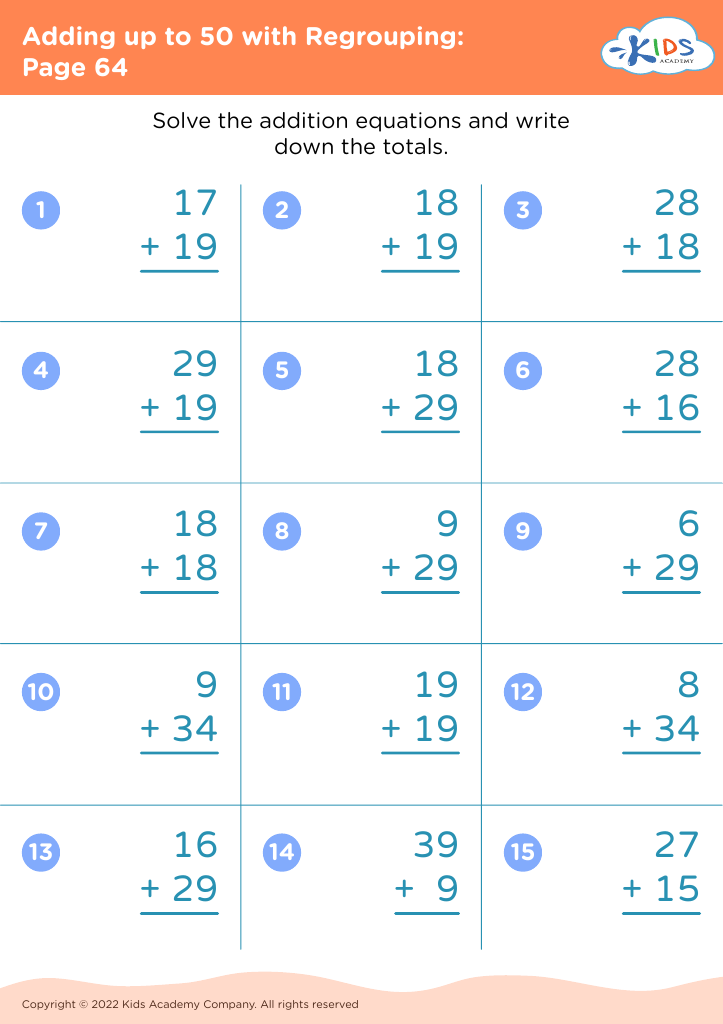Money recognition Math Worksheets for Ages 7-9
8 filtered results
-
From - To
Looking to boost your child’s financial literacy and math skills? Discover our Money Recognition Math Worksheets, specifically designed for ages 7-9. These engaging, educational worksheets help kids identify coins and bills, understand their values, and solve money-related problems with ease. Perfect for classroom or at-home learning, each worksheet combines fun activities with essential math practice, ensuring children grasp key concepts while enjoying the process. Dive into interactive exercises that make learning about money an adventure. Set a solid foundation for your child’s future financial skills with our expertly crafted resources, available for printing from Kids Academy.
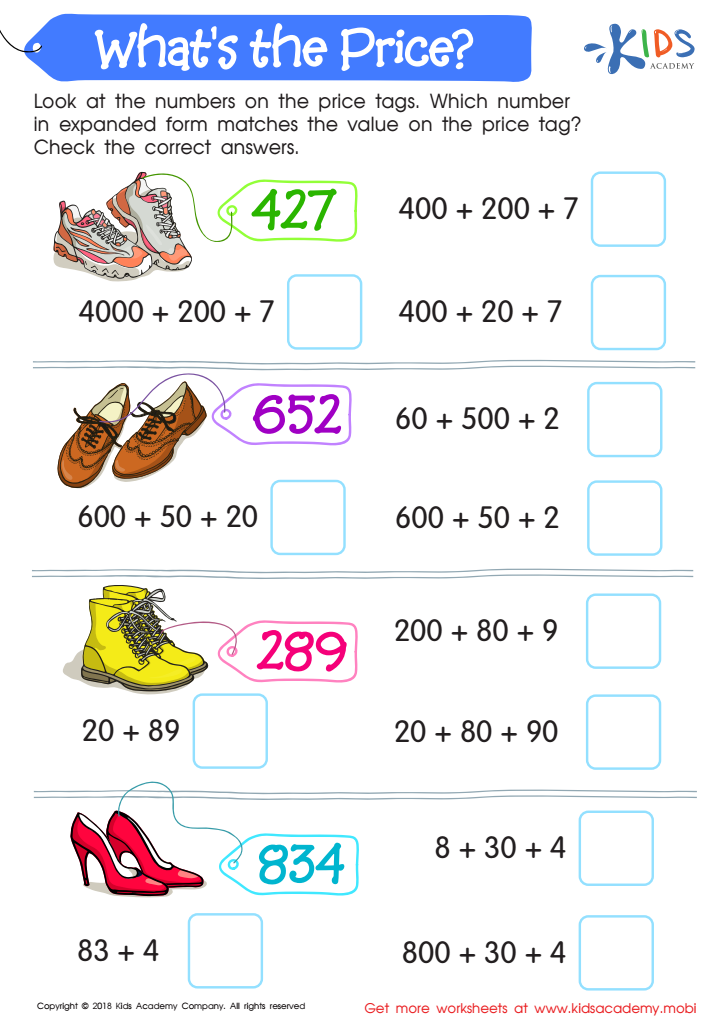

What's the Price? Worksheet
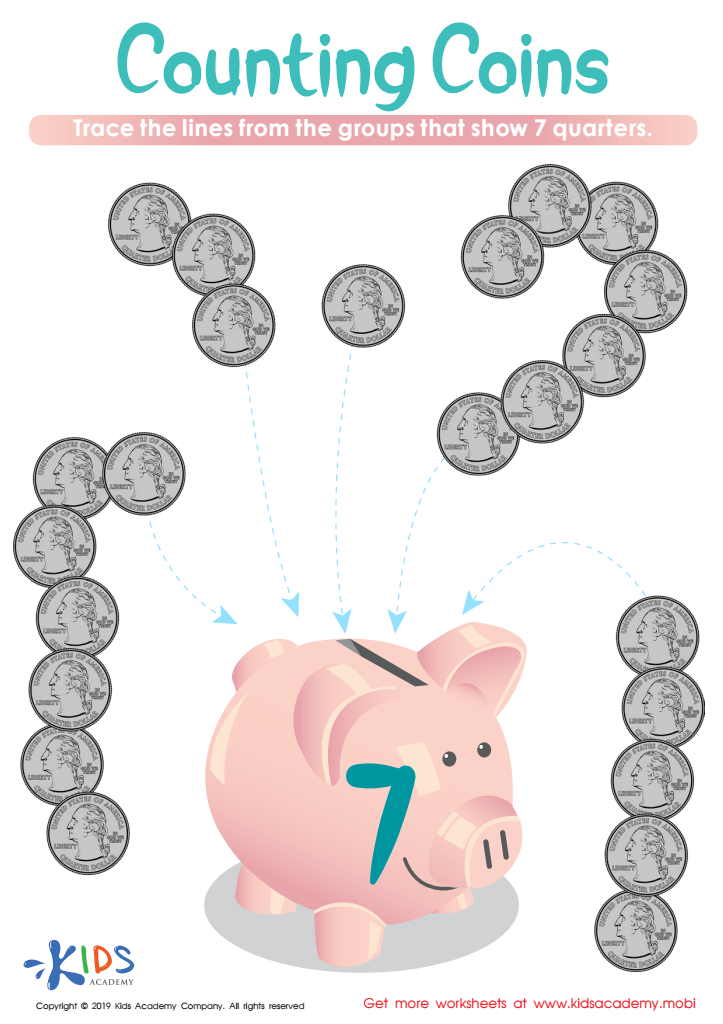

Counting Coins Worksheet
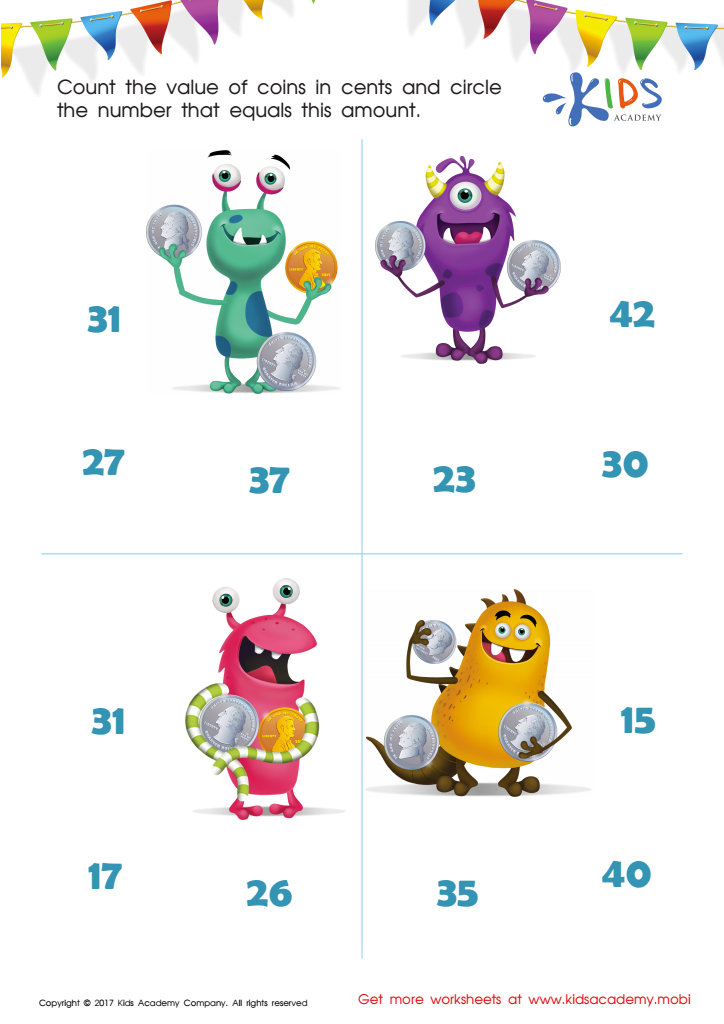

How Many Coins Money Worksheet
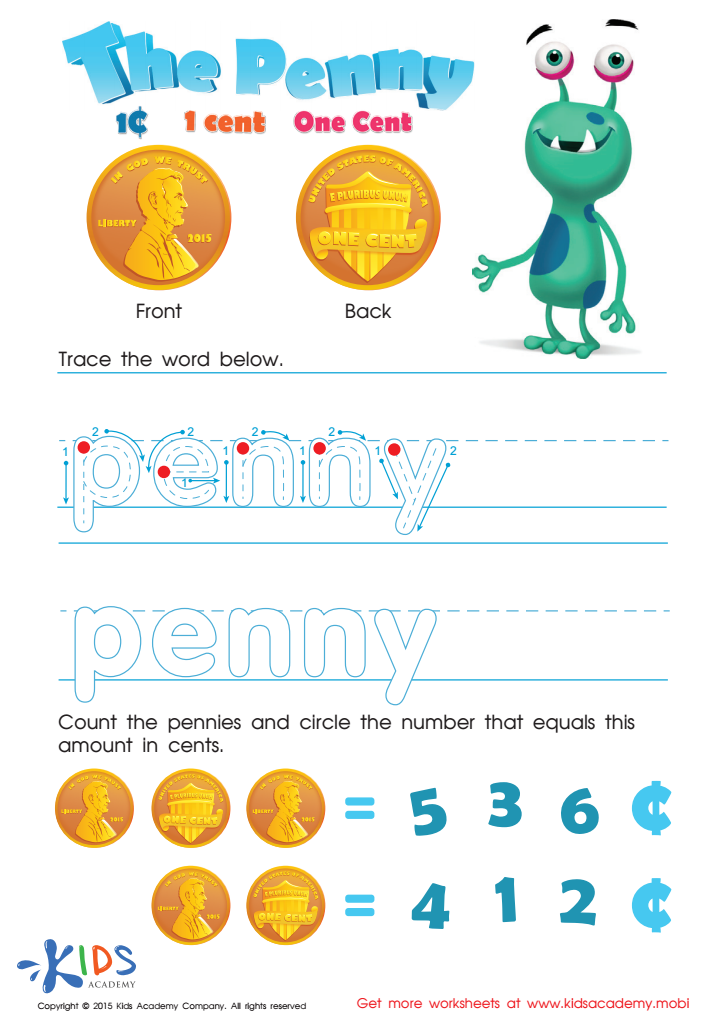

One Cent or the Penny Money Worksheet
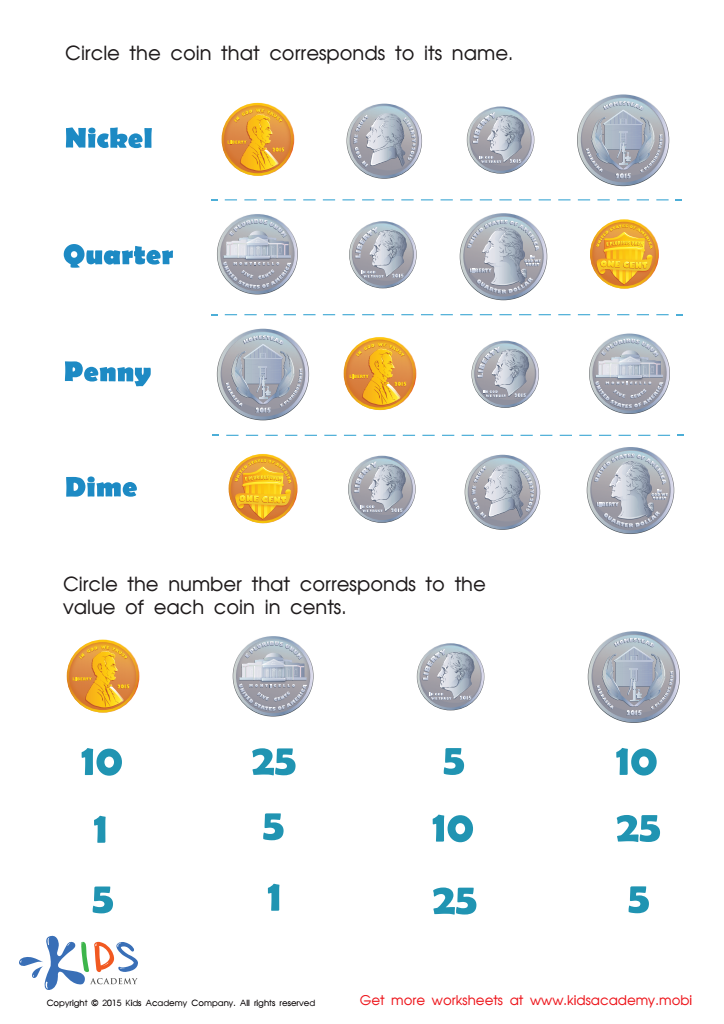

Coin Names and Values Money Worksheet
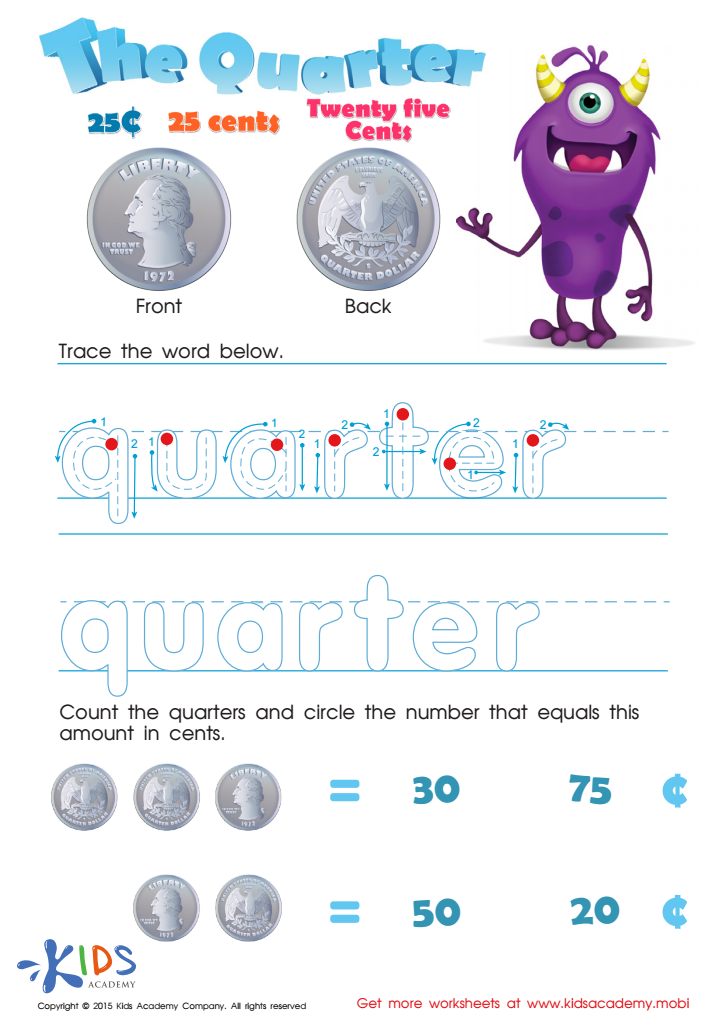

Twenty Five Cents or the Quarter Money Worksheet
Parents and teachers should prioritize money recognition math for children ages 7-9 as it lays a foundational life skill that integrates both practical and academic learning. At this developmental stage, children are exceptionally receptive to new concepts, making it ideal for introducing basic financial skills. Understanding different denominations of money helps kids grasp the value of currency, which is essential for everyday transactions, such as making purchases or receiving change. This foundational knowledge promotes financial literacy early on, fostering a sense of responsibility and smart decision-making.
Additionally, learning to recognize and count money strengthens their mathematical abilities. It offers a tangible way to practice arithmetic skills like addition, subtraction, multiplication, and division. Handling money in various scenarios—such as playing store—helps to contextualize abstract mathematical concepts, making learning more engaging and relevant.
Moreover, introducing money recognition disciplines also ties in lessons about saving, spending, and budgeting, which has long-term benefits for personal financial management. Inculcating these skills early builds a more confident, informed, and responsible individual. Supporting a child's capacity to handle money intelligently is a critical step towards preparing them for future financial independence and economic awareness.
In summary, integrating money recognition math within early education supports mathematical proficiency while instilling essential life skills, enabling children to navigate their financial worlds with confidence.
 Assign to My Students
Assign to My Students


